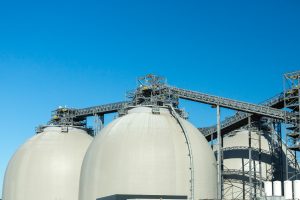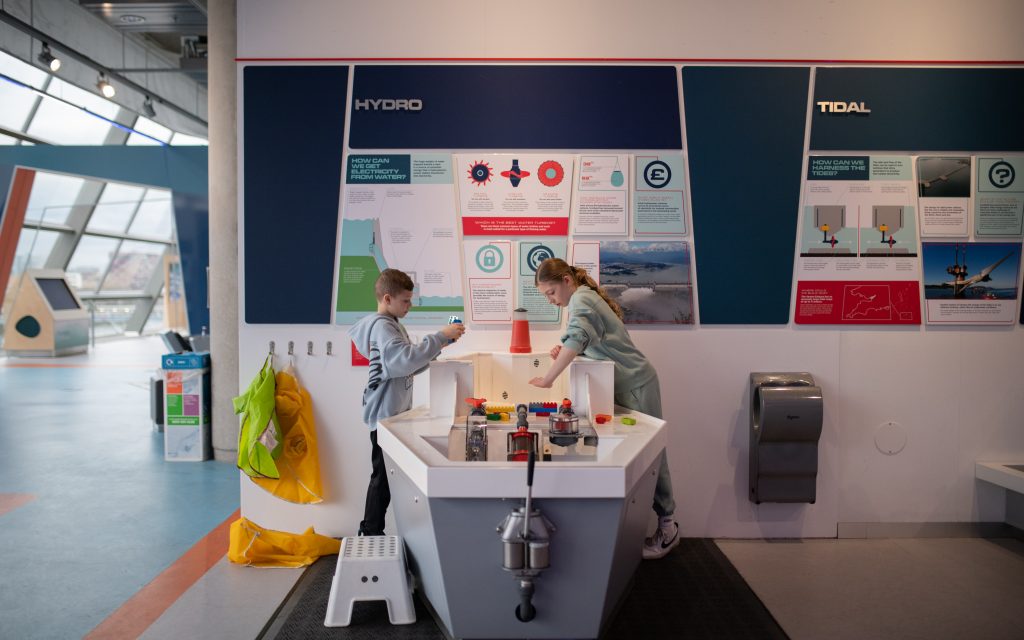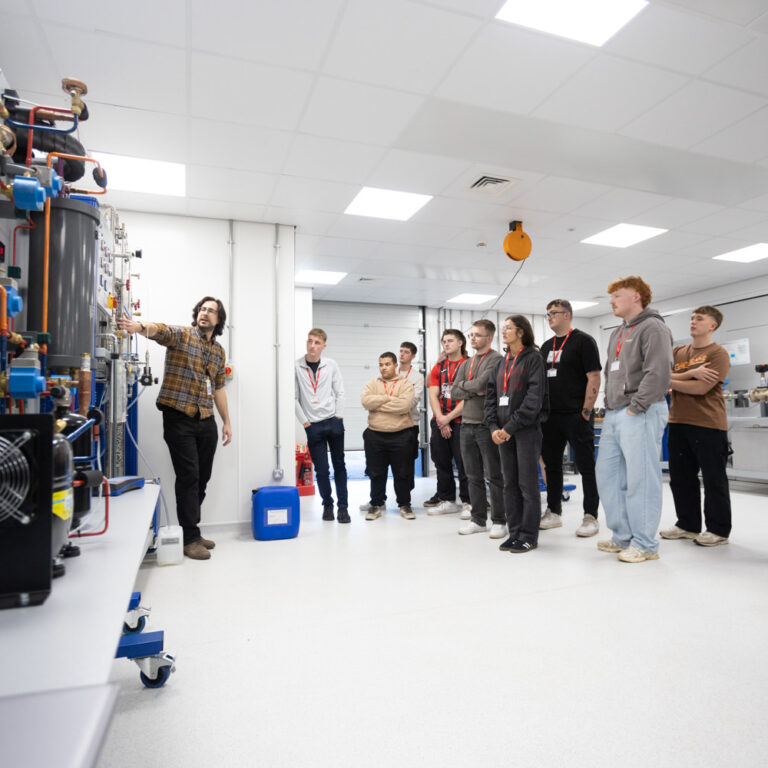Drax Foundation and Glasgow Science Centre have worked together to develop the bespoke programmes that will support schoolchildren to build their STEM (science, technology, engineering and maths) skills and inspire them to consider careers in hydropower.
The hydropower sector in Scotland is growing, with plans being developed to expand pumped storage hydro stations including Drax’s Cruachan plant, and it is set to remain a long-term source for careers in renewable energy.
Sarah Cameron, Community Manager for Scotland at Drax Group, said:
“We are proud to support Glasgow Science Centre and the work they are doing to develop STEM skills among young Scottish people. The learning lab and workshop are pioneering hydropower education programmes that will help students develop their STEM knowledge and hopefully get excited and interested in a career in hydropower.
“We are committed to giving back to our communities, it’s important to us to help children develop the skills, particularly in STEM, that can help solve challenges like climate change and develop and deploy technologies which can further decarbonise our energy system.”
The primary schools programme is run through Glasgow Science Centre’s ‘Learning Lab’ and lasts between four to six weeks. It uses case studies of Drax’s Scottish assets to teach children how different forms of hydropower operate, this includes pumped hydro and run of river plants. It also includes a visit for participating classes to Glasgow Science Centre or a visit to their school from the science centre’s On Tour team.
Students in secondary schools can participate through STEM Futures Work Readiness Workshops. These workshops are for fifth and sixth year pupils and are delivered on site at Glasgow Science Centre. In the training, young people work together to explore the careers available in hydropower in Scotland as well as the skills they would need to develop to access them.
Dr Stuart Meiklejohn, STEM Futures Project Coordinator, at Glasgow Science Centre, said:
“This exciting new partnership will deliver invaluable hydro-themed education resources and is the first of its kind in Scotland. Using Glasgow Science Centre’s innovative Learning Lab approach, we will help pupils learn about the importance of, and science involved in, hydro energy in their everyday lives.
“The engaging programmes encompass teacher training to build classroom confidence and hydropower content designed for primary pupils in Scotland, along with opportunities to hear from experts working in the sector. Older pupils will also be able to learn how they can pursue their lifelong relationship with STEM as they are thinking about their future careers.
“We are excited to be working with Drax and look forward to the amazing impact this work will have on the students of Scotland.”
The programmes are fully funded by Drax and there are resources available for 50 primary schools to participate in the Learning Labs as well as 20 workshops for up to 400 secondary school pupils. Schools can apply for the programmes, which will launch in early 2024, by contacting Glasgow Science Centre via their website: glasgowsciencecentre.org.
The launch of the programmes follow on from Drax’s corporate foundation, Drax Foundation’s, recent funding of EDI bursaries with EngineeringUK which will help support underrepresented young people into engineering careers. The Foundation is a key part of Drax’s community strategy, which is focused on ensuring that the business delivers a positive impact in the communities where it operates.
Alongside these new programmes Drax offers free educational tours for schools of its Cruachan site in Argyll and Bute. These tours offer insights into what a career in engineering involves, how pumped storage hydro works and how Cruachan supports meeting Net Zero targets. For more information on tours and their availability schools can contact the Cruachan Visitor Centre via: [email protected].
Media contacts:
Andy Low
Media Manager
E: [email protected]
T: 07841 068 415
About Drax
Drax Group’s purpose is to enable a zero carbon, lower cost energy future and in 2019 announced a world-leading ambition to be carbon negative by 2030, using bioenergy with carbon capture and storage (BECCS) technology.
Drax’s around 3,000 employees operate across three principal areas of activity – electricity generation, electricity sales to business customers and compressed wood pellet production and supply to third parties. For more information visit www.drax.com
Power generation:
Drax owns and operates a portfolio of renewable electricity generation assets in England and Scotland. The assets include the UK’s largest power station, based at Selby, North Yorkshire, which supplies five percent of the country’s electricity needs.
Having converted Drax Power Station to use sustainable biomass instead of coal it has become the UK’s biggest renewable power generator and the largest decarbonisation project in Europe. It is also where Drax is piloting the groundbreaking negative emissions technology BECCS within its CCUS (Carbon Capture Utilisation and Storage) Incubation Area.
Its pumped storage, hydro and energy from waste assets in Scotland include Cruachan Power Station – a flexible pumped storage facility within the hollowed-out mountain Ben Cruachan.
The Group also aims to build on its BECCS innovation at Drax Power Station with a target to deliver 4 million tonnes of negative CO2 emissions each year from new-build BECCS outside of the UK by 2030 and is currently developing models for North American and European markets.
Pellet production and supply:
The Group has 19 operational pellet plants and developments with nameplate production capacity of around 5 million tonnes a year.
Drax is targeting 8 million tonnes of production capacity by 2030, which will require the development of over 3 million tonnes of new biomass pellet production capacity. The pellets are produced using materials sourced from sustainably managed working forests and are supplied to third party customers in Europe and Asia for the generation of renewable power.
Drax’s pellet plants supply biomass used at its own power station in North Yorkshire, England to generate flexible, renewable power for the UK’s homes and businesses, and also to customers in Europe and Asia.
Customers:
Drax supplies renewable electricity to UK businesses, offering a range of energy-related services including energy optimisation, as well as electric vehicle strategy and management.
To find out more go to the website energy.drax.com
To find out more information about the Drax Foundation go to the website www.drax.com/community




















